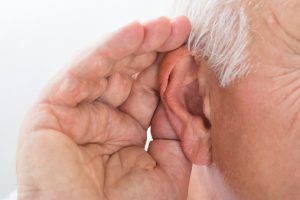
Heart disease continues to be the number one killer of men and women, yet many Americans don’t realize how serious it can be nor do they understand how poor heart health affects other areas of health.
In order for you to hear well, your ears need a constant flow of blood. When blood flow is limited to the ears, it becomes a contributing factor to hearing loss.
The ability to hear is given to us by cells in the ear that translate noise that enters the ear into distinctive sounds. They turn sound waves into electrical impulses to be sent to the brain. This function relies heavily on proper blood circulation. When our ears lack circulation, damage or destruction of hair cells in the ear occurs, which leads to hearing loss. These cells are unable to regenerate, so hearing loss is permanent.
A 2009 study that looked at heart health and hearing uncovered that poor heart health does negatively impact the
central auditory system.
So what can we do to prevent poor circulation from affecting our hearing? The obvious answer is to boost circulation, and a good way to do so is through exercise. Exercise is known to improve heart health along with boosting circulation.
A study conducted by Miami University found a positive relationship between cardiovascular exercise and hearing. Volunteers were followed and their hearing was evaluated after riding a stationary bike. The researchers found that the volunteers with the highest cardiovascular fitness level also experienced improved hearing, especially those over the age of 50.
An alternative study analyzed data from the 2003–2006 National Health and Nutrition Examination Survey (NHANES). The participants who were more physically active had lower triglyceride levels, which are associated with hearing loss. Triglycerides are fat in the blood, and when this fat accumulates, it can reduce blood circulation.
Assistant Professor Charles E. Bishop explained, “Hearing health should not be assessed in a vacuum. There is simply too much evidence that hearing loss is related to cardiovascular disease and other health conditions. It’s time we maximized the information we have in order to benefit the individual’s overall well-being.”
Researchers speculate that low-frequency hearing loss could be an early indicator of heart disease. If you notice any changes in your hearing, you may need to take greater steps to improve your heart health. Even if you don’t currently have hearing issues, it’s always a good idea to protect your heart, not only to prevent hearing loss, but to maintain overall good health.
Related: 7 strange causes of hearing loss